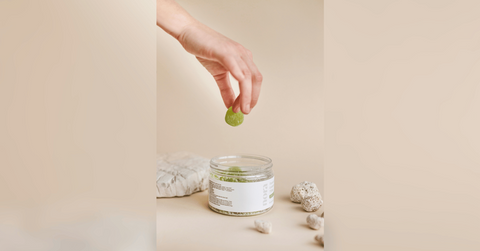Hemp Gummies: A Plant-Based Path to Everyday Wellness

June 24 2025, Published 2:00 a.m. ET
Hemp gummies are gaining popularity as a non-psychoactive supplement that may support mood, sleep, and physical well-being without the effects of THC. They are used for a wide range of issues, from physical to psychological. Many prefer hemp gummies for their precise dosages, allowing users to know exactly how much they are taking.
Modern consumers are increasingly opting for eco-friendly products with transparent labeling, which has contributed to the popularity of hemp, along with its potential therapeutic benefits.
What are Hemp Gummies?
Made from hemp extract, hemp gummies are rich in beneficial cannabinoids like CBD without the THC. They differ from marijuana-derived edibles in their source and lack of THC. Known for their potentially therapeutic uses, including relaxation, anxiety relief, and pain management, they do not produce a mind-altering state or have adverse side effects for most, as they do not contain psychoactive properties.
Wellness Benefits of Hemp-Based Supplements
Hemp-based products are sought for their potentially therapeutic benefits, including balanced joint health, and as a daily supplement, similar to vitamins. They are also considered a nutrient-dense food, as they contain as much protein as soybeans and all nine essential amino acids. They also have an impressive amount of vitamins, including vitamin E, magnesium, phosphorus, and potassium, and are a good source of Fiber and B vitamins.
The Difference Between Hemp Seed Oil and Hemp Extract
Hemp seed oil and hemp extract are both derived from the hemp plant, part of the Cannabis sativa plant. The oil is pressed from the seeds, while the extract is taken from the leaves, flowers, and stalks. The oil is often used for its nutritional value, offering essential fatty acids. The extract is often utilized as an anti-inflammatory, pain reducer, and for its anti-anxiety properties, although more clinical research is needed to confirm these benefits.
Hemp's legality in the United States is complex; while legal in the 18th and 19th centuries, it was widely banned in the U.S. during the 20th century. The Farm Bill was passed in 2018, which legalized hemp with a maximum THC limit of 0.3%. Hemp has become increasingly popular due to its versatility and numerous uses.
Quality Considerations
As these products become legal in many states, they undergo stringent testing and regulatory requirements. Due to the tight regulation around hemp products, hemp extract oils are also heavily regulated, requiring strict adherence to THC limits (typically 0.3% or less) and quality standards.
Hemp products must undergo third-party testing for quality and purity, and this information is typically displayed on the label. Basic labeling requirements include product identification, net quantity of ingredients, warning labels, and disclosure of material facts.
Growing Consumer Demand
There is a broad shift among consumers toward holistic and preventative health products, and this is a significant reason many are turning to hemp gummies. Hemp's potential anti-inflammatory properties make it an appealing ingredient for makeup products and personal care, underscoring consumers' shift toward natural and holistic approaches to everyday products. On the pharmaceutical side, hemp seeds and oils are increasingly utilized for their nutritional content and applications in personal care products, such as skin salves and sleep oils.
The market is growing, driven by the demand for sustainable and eco-friendly products and practices. Hemp's versatility enables it to be used in a wide range of products, including textiles, food and beverages, and cosmetics. Hemp fibers are resistant to mold and durable, appealing to manufacturers and the construction industry. Growing consumer and industry awareness about the numerous benefits and diverse applications of hemp is driving demand and encouraging further product development.
Hemp is gaining popularity due to its versatility, plant-based profile, and increasing availability. Consumers often prefer hemp products that offer transparent labeling and third-party testing, especially when clear quality standards are followed. Its popularity increases among those seeking plant-based options for everyday wellness and eco-friendly practices.

The Future of Hemp Wellness
As hemp gummies continue to gain acceptance, they represent a meeting of consumer demand for wellness solutions and sustainable, plant-based products. With the right regulations and quality standards in place, hemp gummies offer an accessible use for those seeking to incorporate the potential benefits of hemp into their daily wellness routine.
These statements have not been evaluated by the Food and Drug Administration. This product is not intended to diagnose, treat, cure or prevent any disease.
The information provided in this article is for general informational and educational purposes only. It is not intended as legal, financial, medical, or professional advice. Readers should not rely solely on the content of this article and are encouraged to seek professional advice tailored to their specific circumstances. We disclaim any liability for any loss or damage arising directly or indirectly from the use of, or reliance on, the information presented.


